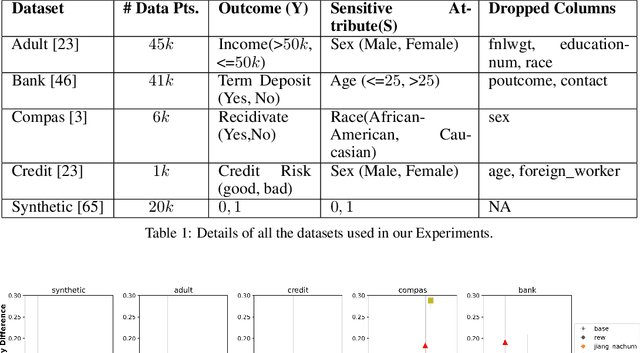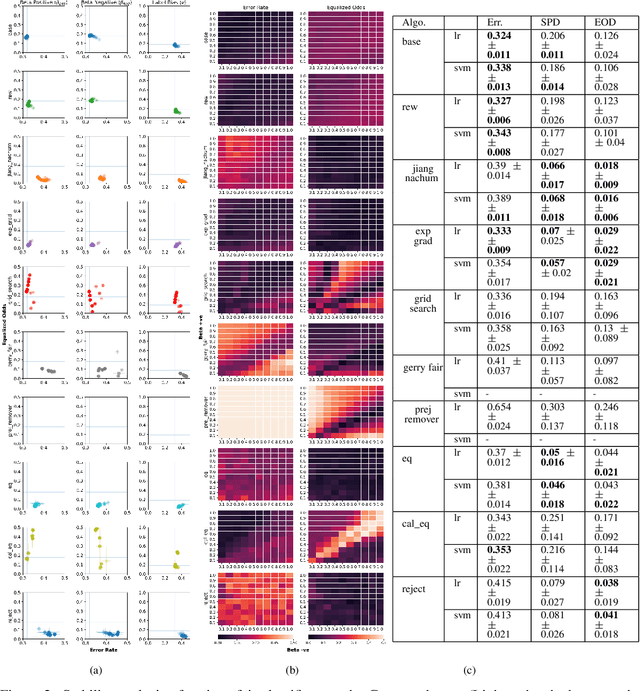On Testing and Comparing Fair classifiers under Data Bias
Paper and Code
Feb 12, 2023



In this paper, we consider a theoretical model for injecting data bias, namely, under-representation and label bias (Blum & Stangl, 2019). We theoretically and empirically study its effect on the accuracy and fairness of fair classifiers. Theoretically, we prove that the Bayes optimal group-aware fair classifier on the original data distribution can be recovered by simply minimizing a carefully chosen reweighed loss on the bias-injected distribution. Through extensive experiments on both synthetic and real-world datasets (e.g., Adult, German Credit, Bank Marketing, COMPAS), we empirically audit pre-, in-, and post-processing fair classifiers from standard fairness toolkits for their fairness and accuracy by injecting varying amounts of under-representation and label bias in their training data (but not the test data). Our main observations are: (1) The fairness and accuracy of many standard fair classifiers degrade severely as the bias injected in their training data increases, (2) A simple logistic regression model trained on the right data can often outperform, in both accuracy and fairness, most fair classifiers trained on biased training data, and (3) A few, simple fairness techniques (e.g., reweighing, exponentiated gradients) seem to offer stable accuracy and fairness guarantees even when their training data is injected with under-representation and label bias. Our experiments also show how to integrate a measure of data bias risk in the existing fairness dashboards for real-world deployments
 Add to Chrome
Add to Chrome Add to Firefox
Add to Firefox Add to Edge
Add to Edge